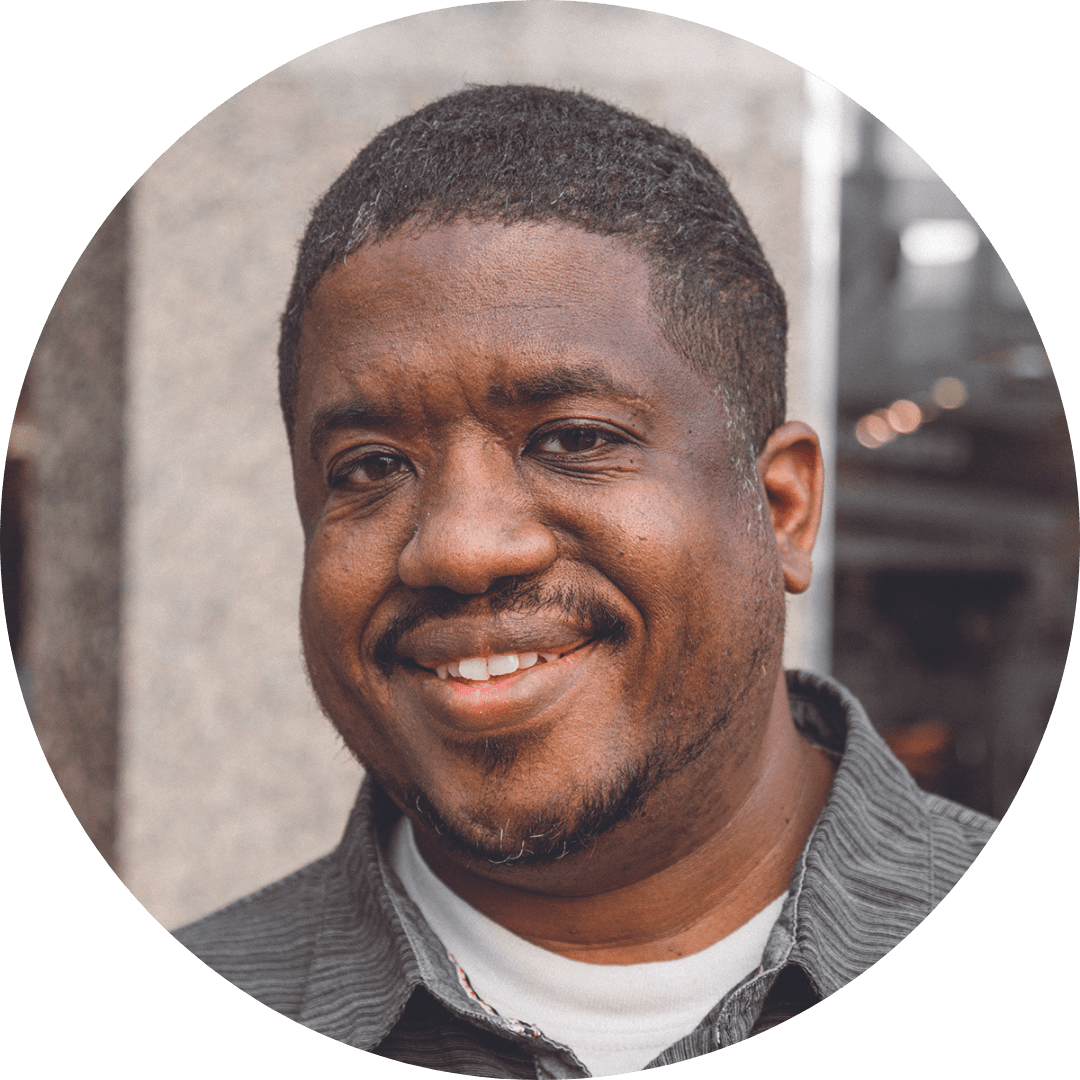CeCe Winans, “The Wind.”
Composed and arranged by Tommy Sims, from the 1998 album Everlasting Love
Author’s Note: If you haven’t already listened to the song above in its entirety, please do so. (Also, I know I sound like Sophia from The Golden Girls when I start an article this way, but sometimes it just can’t be helped.)
The year was 2000.
I had dreamed about it for a long time. It was supposed to be the year everything came together for me.
I’d previously enrolled at North Park College in Chicago—it didn’t become a university until my senior year—which set me on a path to earning an undergraduate degree. For four years, I looked forward to spring of 2000 and all it represented, not just the culmination of my formal education but the launching of my career. It was such a big, round number—it felt more than just special, it felt downright iconic. 2000 would be the year people remembered, and my graduation would be part of the reason why.
Only, that’s not how it went down.
Yeah, people remembered 2000 alright, but mostly for the Y2K panic and the crisis that never really happened. Also, my graduation didn’t happen that year.
Having grown up as an entitled fourth child, I had a blithe lack of concern for deadlines and paperwork, because most of the time my parents or someone else would help fix whatever problem arose. But now as a so-called adult, I was on my own, and I had failed. I hadn’t properly filed my financial aid documents, and on top of that I needed to file petitions to address some credit requirements, and I hadn’t properly handled those either.
Granted, there were several instances of institutional racism at play that made it more difficult for me to navigate those processes. At the time, the system was the only cause I could clearly identify for my lack of success. In my view, the system failed me because the mostly white professors hadn’t addressed what I felt was injustice in the way the degree requirements were identified.
The closer the calendar inched toward May that year, the more my anger and indignance turned to shame and embarrassment. All of my friends were going to walk across that stage—and I was not. I gradually became more and more distant from those friends. Looking back now, I can tell that a lot of them probably wanted to be supportive but didn’t know how. And they had their own futures to navigate. It was an emotional time for all of us.
So as much as I was glad to have friends trying to look out for me, I didn’t want to be seen in my shame. Yes, I was angry at the system, but also, deep down I was angry at myself. Angry that I couldn’t conquer my old habits, angry that I let my penchant for procrastination turn into an indifference toward critical details, and angry that my failure to execute those details torpedoed my chances at graduating. I didn’t like who I was, and I was unsure of who I was becoming.
In the middle of this painful period, I kept coming back to the CeCe Winans song called “The Wind.”
I’m not one to play songs on repeat often, but “The Wind” kept making it back into my rotation. Every disc that I burned of slow jams or worship tunes inevitably included this song. I couldn’t quite put my finger on why, but something about it spoke to me.
In the intervening years, as I’ve served as worship leader, worship pastor, associate, and co-pastor, I’ve witnessed the way music can connect with people on a deeper level than just words on a page.
The vamp at the end of the song (at the 3:03 mark if you’re following along) was my first connection.
On this track, the background vocals were performed by The Katinas, a band of worshiping brothers who’d just released their major label debut on Gotee Records. Because of my early involvement with writing about music, I’d had a chance to meet them once. If you could take the typical late ’90s boy band but allow them to sing gospel, make them Samoan, and then eliminate all the typical boy-band dramatic excesses, you’d have The Katinas.
I recognized their voices right away. They were singing background prior to that point, but the vamp is where I really started paying attention. The combination of their smooth delivery, mixed with Cece’s heartfelt singing moved me. I didn’t really know what it meant, but sometimes it made me cry.
Okay, fine, all the time it made me cry.
But it wasn’t until many, many years later that I felt like I understood what the song had to say.
And here’s where credit should go where it’s due: to super producer and Grammy-winning songwriter Tommy Sims. It starts with the title, “The Wind.”
At this point in my musical diet, I’d been conditioned by most gospel music to expect straightforward song titles. A majority of hit gospel albums were recorded live as part of worship services, so the songs were usually named after simple, repetitive choruses. Kurt Carr’s “In the Sanctuary,” Fred Hammond’s “No Weapon,” and Kirk Franklin’s “Melodies from Heaven” were songs with obvious meanings and understandable concepts.
But this song was different. It was vague—mysterious, even. The wind…what wind? What does that even mean? Is Jesus the wind? Is the wind a miracle I’m supposed to pray for?
“The Wind” is the kind of song some pastors might be skeptical of, because they figure if there isn’t an obvious reference to God then it must be—DUN-DUN-DUUUUUUN—secular. Where other songs might beat you over the head with repeated declarations of Christian cliches and platitudes, that’s not the case here.
That’s exactly why I was drawn to it. But because I was so entranced with the vamp at the end, it wasn’t until many years later that I took the time to listen to the lyrics in the first part of the song.
With all of my heart, I know I could love you
But with all of my soul, I’m driftin’ away
Those two opening clauses remind me of Deuteronomy 6:5, the words from the Torah about loving God with all our heart, soul, mind, and strength. These are the same words Jesus quotes in Matthew 22:37. Throughout the opening verse, the singer is using these phrases, or variations thereof, to depict an honest desire for God, a desire to move toward wholeness and restoration.
But there’s a tension there, revealed in the second line: “I know I could love you…but…I’m driftin’ away.” That desire for love and connection is tempered by the singer’s realization of their own futile fragility. They want to experience God, to experience love and joy and forgiveness, but somehow they feel like they’re not capable of it.
And there’s fear, which is established more clearly in the pre-chorus:
But I’m so afraid that you’ve forgiven one too many times
I’m so afraid to give my heart again, just to have a change of mind
I’m not quite sure that you can trust me
And I would hate to have you find me again
Driftin’ away like the wind
As I listen in on this internal monologue, I feel empathy and compassion for the singer, but I’m also struck by a realization.
In this case, the wind isn’t Jesus. The wind is me.
The wind represents our human inability to completely abide by our internal inclination toward the divine. We are a “sometimey” people—totally committed, on fire one day; indifferent and flaking out the next. We blow one way one moment, then the other in the next.
It’s the duality of our predicament that serves as the identity of the song. God help us, for we are the wind.
And yet somehow, that’s exactly what seems to happen. God does help us.
Because in the vamp, you hear this:
It blows and nobody knows where it’s goin’ to
(Like the wind)
It blows and nobody knows what it’s gonna do
(Oh no, like the wind)
At night, you can hear it cry
As the teardrops fall from Heaven’s eyes
And somehow you know it’s true
These tears that fall could be fallin’ for you
Here is where those background singers come in, because they represent a different literary voice. They’re the words of friends, people who have your back, who are committed to tell you the truth, even when that truth is difficult to hear.
Here, the difficult truth is this: God is active in the wind.
The lyrics point toward the presence of the divine, not as an ever-present judge who smites us for our wavering belief, but as gentle summer breeze who offers relief and refreshment when we need it most. The challenge here is not to live up to God’s standard, but to simply accept God’s love.
There’s a reason why the song doesn’t simply come out and say that—actually several reasons.
First of all, if you grew up in the church, it’s easy to mentally tune out songs like that. They don’t always capture our imagination. Also, for those who didn’t grow up in the church, it might be a huge leap to get to “Jesus loves you” because those are the words of the institutional church, and the institutional church has hurt a LOT of people. Maybe “Jesus loves you” is gonna be triggering to someone who was treated like garbage in their church experiences.
But thankfully, God is not limited to those contexts! God is just as active and full of movement in the mysterious places, in the gaps, in the margins, and in the witness of the earth. God is active in the trees, the rivers, the stars, and… yes, the wind.
Just like the wind, God cannot be controlled. God cannot be focus-grouped, or budgeted, or strategically planned into alignment. Jesus identified this dynamic in John 3 when Nicodemus, the religious official, asked him what he meant about being “born again”:
“How can someone be born when they are old?” Nicodemus asked. “Surely they cannot enter a second time into their mother’s womb to be born!”
Jesus answered, “Very truly I tell you, no one can enter the kingdom of God unless they are born of water and the Spirit. Flesh gives birth to flesh, but the Spirit gives birth to spirit. You should not be surprised at my saying, ‘You must be born again.’ The wind blows wherever it pleases. You hear its sound, but you cannot tell where it comes from or where it is going. So it is with everyone born of the Spirit.”
It’s not a coincidence that Jesus references the wind as an explicit description of being born of the Spirit. There is something wild and mysterious about it. Something happens in a place we cannot really understand or even fully grasp, but receive as an article of faith and belief.
Over time, as I kept listening to “The Wind,” I started to feel differently about my situation. I realized that my life wasn’t really over (even though it felt like it was) and that if I stayed with it, I eventually would graduate with a degree (which I did, four years later).
I learned that God is still for me even I’m not sure if I’m for me. And I learned these things, not in a classroom sort of way, but in a way where the truths sort of settled in gradually. It was like waves coming in from low tide that surrounded me, protected me, refreshed me, and gave me courage and strength to keep going.
So if you’re in a tough situation, I hope this song ministers to you. It’s helped me to persevere despite a lack of control or understanding, and given me unexpected moments of inspiration and refreshment.
Just like the wind.














